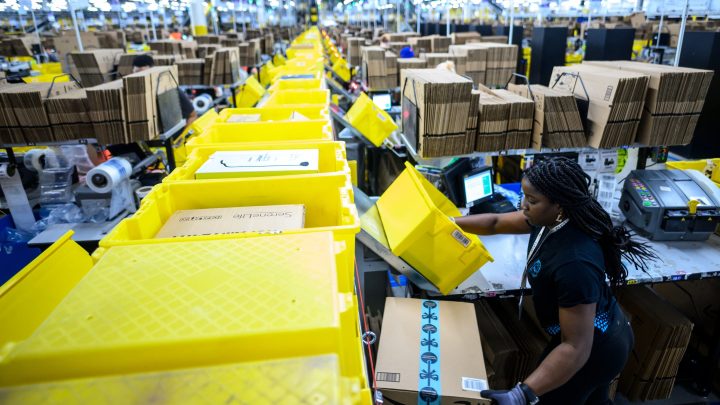
Workers are being more productive, a good sign for low-inflation growth
Workers are being more productive, a good sign for low-inflation growth

Turns out we were a little more productive in the second quarter of the year than we were in the first. Worker productivity grew at a 3.7% annual rate, the Labor Department reported Thursday.
That number is really a reflection of a couple of key components: how much stuff we’re making and how long it’s taking us to do it. Both factors are moving in the right direction.
The Labor Department says worker output rose in the second quarter in large part because economic growth has been picking up.
“Not only were consumers spending, businesses were investing, but you also saw a rebound in inventories,” said Sarah House, senior economist at Wells Fargo. All of those factors are signs that workers are producing more products, she said.
For instance, consumers spending more. “Consumers had to spend on something that was produced,” House said. “So even if that was a meal at a restaurant, the airline flight — that was a product being offered to consumers.”
Meanwhile, the report said it’s taking workers less time to make all those products. Average weekly hours worked fell.
“We’re getting to the point where those average weekly hours are basically back towards where they were pre-COVID,” House said. “That’s great for these employees who’ve been so overworked the past few years.”
Productivity numbers are volatile, House acknowledged, and they’re often revised later.
The decline in hours worked could also reflect the fact that the workforce is getting older, per George Pearkes, global macro strategist at Bespoke Investment Group.
“That is going to shift towards more people with part-time work, fewer people with very high-hour jobs per week,” he said.
Rising productivity can be a good sign for inflation. The Labor Department also looked at how much the production of one product is costing employers in terms of hourly pay. That number has cooled down a lot.
“That looks to validate the story that high inflation from the post-pandemic period was not a structural thing, but was a very quick cyclical shock of inflation,” Pearkes said. “And we’re now reverting back towards the kind of 2% inflation environment that we were used to before COVID struck.”
And if productivity continues to rise, it’ll cost even less to make things.
There’s a lot happening in the world. Through it all, Marketplace is here for you.
You rely on Marketplace to break down the world’s events and tell you how it affects you in a fact-based, approachable way. We rely on your financial support to keep making that possible.
Your donation today powers the independent journalism that you rely on. For just $5/month, you can help sustain Marketplace so we can keep reporting on the things that matter to you.

















